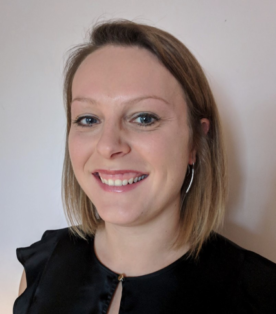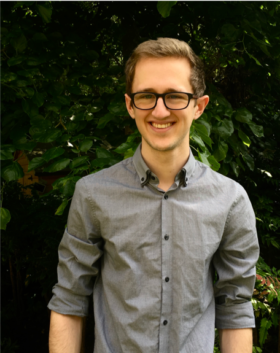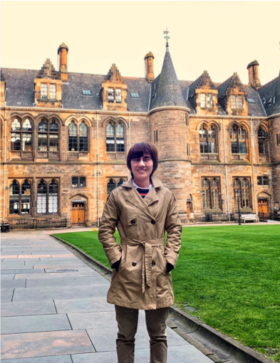Microbiology Society journal prizes: Genome Science and IMAV19
Posted on February 21, 2020 by Microbiology Society
Each year, the Microbiology Society’s journals sponsor a number of prizes at various conferences around the world. Here, we speak with some of the winners of prizes presented at Genome Science and the 2019 International Meeting on Arboviruses and their Vectors (IMAV).
Winner of the Microbial Genomics oral presentation prize at Genome Science: Fiona Whelan

Title of talk: “The co-occurrence and exclusion of evolving objects in prokaryotes”. My talk focused on understanding the interactions between microbes – which microbes tend to be friendly with each other, and which microbes act more like enemies.
What inspired you to become a scientist? My parents were always really supportive in allowing me to be curious and to explore, especially outdoors. But I also have to give credit to Bill Nye the Science Guy and the original Jurassic Park for showing me the possibilities of science!
What are you currently working on and what area of your research excites you the most? I am really passionate about using computational and mathematical techniques to study the human microbiome. I think the microcosms of organisms that live on and in the human body, and how they can affect everything from our digestion to our moods, is beyond fascinating.
What would you be doing in your career if you weren’t a scientist? I would love to work in a National Park promoting conservation and teaching others about the importance of the natural world.
Winner of the Microbial Genomics poster presentation prize at Genome Science: Joshua Harling-Lee

Title of poster: “Visualising the pangenome of Staphylococcus aureus”. My poster focused on the differences between the genomes of bacteria. Some of these differences can make bacteria more likely to cause disease, so we study them to improve the health of both humans and animals.
What inspired you to become a scientist? My dad is a research scientist, and I grew up being told about the immune system and all sorts of interesting biology, so I guess that inspired my interest in science at an early age. My Master’s supervisor gave me the encouragement to go on and do a PhD.
What are you currently working on and what area of your research excites you the most? I’m currently working on bacterial pangenomics, in particular Staphylococcus aureus, with an emphasis on big data analysis and visualization. The most exciting area to me is the development of new, scalable analyses and visualization tools, which are vital to keep up with the explosion of sequencing data.
What would you be doing in your career if you weren’t a scientist? Something with computers I expect; probably a data analyst of some description. So what I do now, but without the interesting biology! Alternatively, I’d love to be a concert pianist, carpenter or sound engineer.
Winner of the Journal of General Virology oral presentation prize at IMAV 2019: Tanamas Siriphanithchakorn

Title of talk: “Molecular determinants of dengue virus attenuation in Aedes aegypti.”
What inspired you to be a scientist? I’m inspired at how the work of scientists worldwide makes an impact on our everyday lives; be it drug development, or even in technologies that bring us better homes. I’d like to believe that my hard work can contribute to the improvement of other people’s lives.
What are you currently working on and what area of your research excites you the most? I am currently working on finding the molecular determinants of attenuation of the dengue virus serotype 2 vaccine strain PDK53, which was derived from the clinical isolate 16681. I think working with mosquitoes is most exciting, it can be tedious but when I gain good results it is absolutely satisfying.
What would you be doing in your career if you weren’t a scientist? If I weren’t a scientist, I would open my own coffee shop. My coffee shop would be work-friendly with different spaces designed to meet the needs of different individuals, and the menu would be created to enable people to work efficiently.

